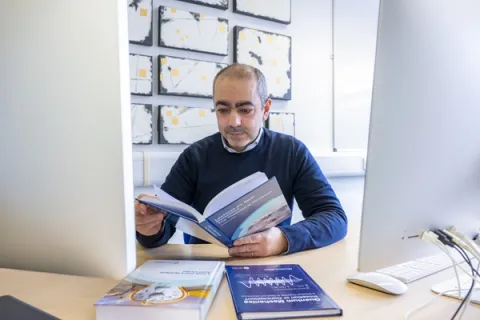About the project
Our objective is to develop Nuclear Magnetic Resonance spectroscopy to make it capable of detecting individual quantum spins. This goal will be achieved by developing magnetic lenses to amplify the signal from and out of the spin-hosting materials.
Magnetic Resonance is a non-destructive and harmless technique that provides static and dynamic information on various types of samples and can be used on both in-vivo and ex-vivo tissues. However, the technique suffers from low sensitivity that make it not particularly competitive to other imaging techniques when it comes to sensing individual quantum spins.
This project aims at fabricating integrated radiofrequency coils and Lenz lenses to enhance the signal-to-noise in Nuclear Magnetic Resonance (NMR) Spectroscopy to achieve ultra-high sensitivity to detect individual quantum spins. You will be responsible for designing, simulating, fabricating and testing these lenses and coils to achieve the required sensitivity and signal enhancement, whilst matching the design of these devices to an integrated bioreactor where tissue cells are allowed to proliferate inside the NMR/MRI instrument itself.
You will have an active role in performing the simulation and fabrication of these coils in a state-of-the-art nanofabrication cleanroom, whilst testing the performance of these systems in nuclear magnetic resonance equipment working within an interdisciplinary team of Electronic Engineers, Chemists and Life Scientists.
